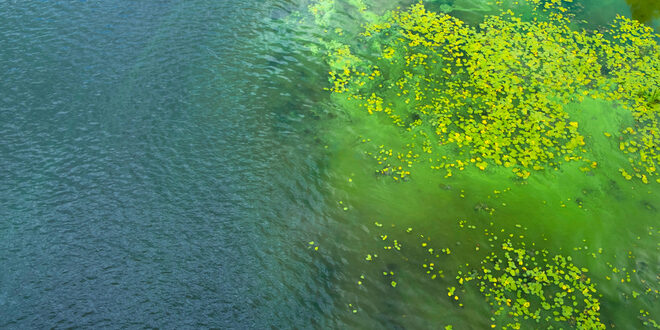The Department of Water Resources (DWR) reopened State Water Project facilities at San Luis Reservoir after the recent closures due to nearby fires. However, a algal bloom warning advisory has been issued at O’Neill Forebay and a caution advisory is in effect for the San Luis Reservoir in Merced County.
People and pets are urged to avoid physical contact with the water at these two locations so swimming and other water-contact recreation is not safe. Boating is still allowed.
The State issues advisories based on the potential health risks from algae. Exposure to toxic blue-green algae, also known as cyanobacteria, can cause eye irritation, allergic skin rash, mouth ulcers, vomiting, diarrhea, and cold- and flu-like symptoms. Pets can be especially susceptible because they tend to drink while in the water and lick their fur afterwards.
Bloom conditions can change rapidly, and wind and waves may move or concentrate the bloom into different regions of the reservoir. The algal bloom can accumulate into mats, and scum, form foam at the surface and along the shoreline, and range in color from blue, green, white, or brown.
The following precautions are suggested for waters impacted by blue-green algae:
- Take care that pets and livestock do not drink the water, swim through algal blooms, scum, or mats, or lick their fur after going in the water. Rinse pets in clean water to remove algae from fur.
- Avoid wading, swimming, or jet or water skiing in water containing algae blooms, scum, or mats.
- Do not drink, cook, or wash dishes with untreated surface water from these areas under any circumstances. Common water purification techniques such as camping filters, tablets, and boiling do not remove toxins.
- Do not eat mussels or other bivalves collected from these areas. Limit or avoid eating fish. If fish are consumed, remove the guts and liver and rinse filets in clean drinking water. No fish should be consumed under a danger advisory.
- Get medical treatment immediately if you think that you, a family member, friend, pet, or livestock might have been poisoned by blue-green algae toxins. Be sure to alert medical professionals to the possible contact with blue-green algae. Also, make sure to contact the local county public health department.
More information about the advisories can be found on DWR’s website.
 California Water News Daily Your Source For Water News in California
California Water News Daily Your Source For Water News in California


